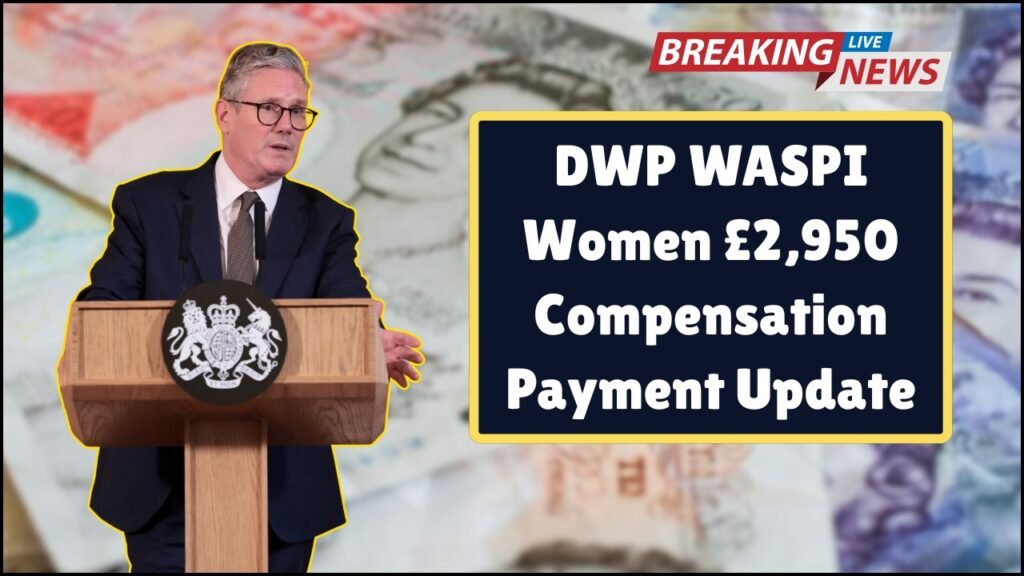
Millions of women in the UK — particularly those born in the 1950s — have faced unexpected financial struggles after discovering that their State Pension age had been increased with little notice. The Women Against State Pension Inequality (WASPI) campaign has long argued that the Department for Work and Pensions (DWP) failed to communicate these changes effectively, leaving many unable to plan for retirement.
Now, new developments suggest that thousands of eligible women could receive a tax-free compensation payout of £2,950 in 2025. While the plan is still under political and legal debate, campaigners see it as a significant step toward justice.
Table of Contents
£2,950 WASPI Compensation
The DWP raised the State Pension age for women from 60 to 66 under the 1995 and 2011 Pensions Acts to align it with men. However, many women say they were not given enough warning, leaving them with reduced savings and postponed retirement plans.
Following a detailed investigation, the Parliamentary and Health Service Ombudsman (PHSO) concluded in 2023 that there had been maladministration in how the changes were communicated. The Ombudsman recommended a Level 4 compensation payout, estimated at £2,950 per affected woman.
While this figure is seen as a compromise between fairness and budget limits, some argue it does not fully reflect the financial and emotional toll.
Overview
| Aspect | Details |
|---|---|
| Campaign Group | Women Against State Pension Inequality (WASPI) |
| Affected Age Group | Women born between 1950 and 1960 |
| Proposed Compensation | £2,950 tax-free per eligible woman |
| Legal Trigger | High Court cost-capping hearing |
| DWP Position | Admits delays but rejects need for compensation |
| Fundraising Goal | £230,000 via CrowdJustice |
The Legal Battle
The current stage of the WASPI campaign centres on a High Court cost-capping hearing. This legal measure would limit the total amount of legal fees campaigners might have to pay if they lose. Without cost-capping, activists risk severe financial consequences, which could jeopardise the case before it reaches trial.
The DWP has acknowledged delays in notifying women but continues to reject the need for monetary compensation, directly opposing the Ombudsman’s recommendation.
Campaign Efforts and Fundraising
The WASPI group is actively fundraising, aiming to secure £230,000 through CrowdJustice to cover legal costs. The movement represents 3.8 million women, making it one of the largest social justice campaigns in recent UK history.
For campaigners, the issue is not just about financial redress but also about restoring dignity and government accountability.
Justification
The Ombudsman’s recommendation followed a multi-year investigation into the DWP’s handling of pension age changes. Compensation between £1,000 and £2,950 was initially considered, but the government opted to standardise the figure at the higher end for fairness and administrative simplicity.
The payment would acknowledge:
- Financial hardship caused by delayed retirement
- Emotional distress and anxiety
- Loss of savings and preparation time
FAQs
Q:- Who is eligible for the WASPI £2,950 payout?
A = Women born between 1950 and 1960 affected by insufficient notice of State Pension age changes.
Q:- Is the compensation guaranteed?
A = No — it depends on political approval and possible legal outcomes.
Q:- When could payments be made?
A = No confirmed date yet, but potentially after policy change or new legislation in 2025.




